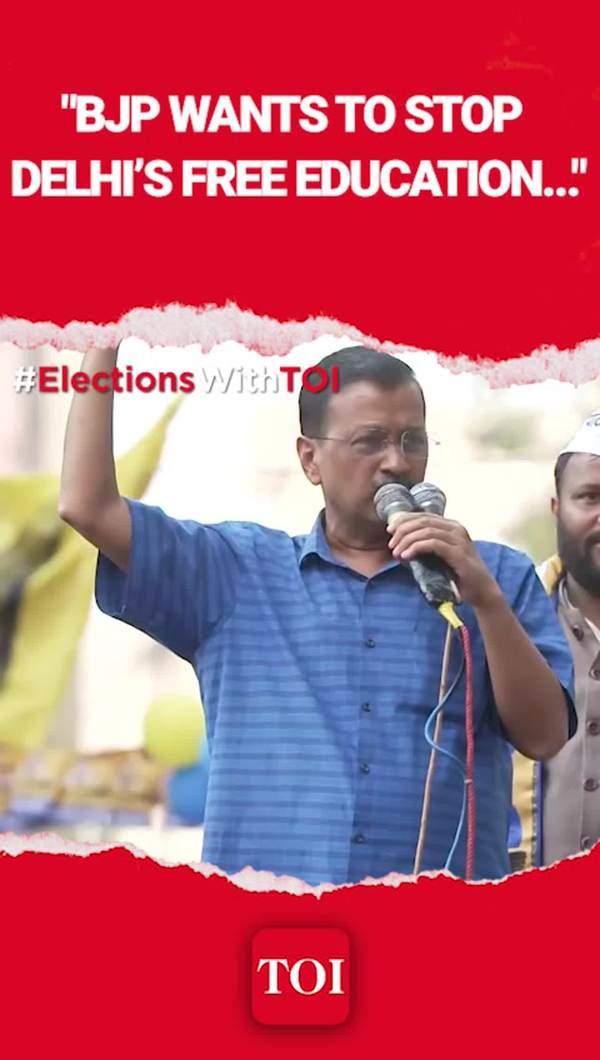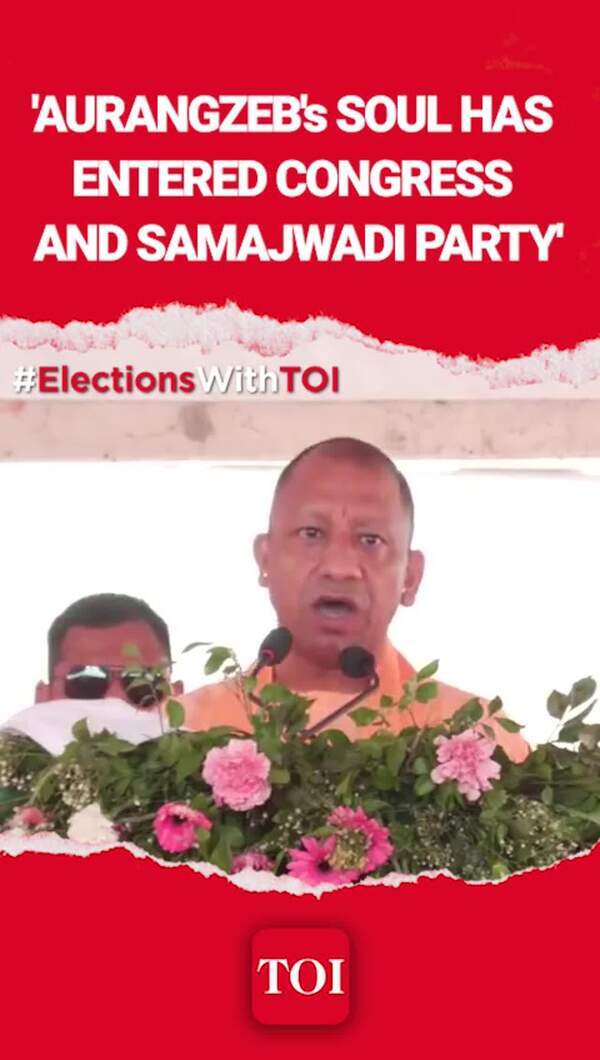- News
- City News
- ahmedabad News
- Writers’ block: Litterateurs fail to pen successful poll stories
Trending
Writers’ block: Litterateurs fail to pen successful poll stories
Indulal Yagnik and Krishnalal Shridharani, historical literate contestants, faced defeats in past Lok Sabha elections. Despite their literary prowess, they failed to translate it into winning votes.

Elections are as much a war of words as they are a parameter of people’s support. This election is missing the eloquence of litterateur contestants. One key reason being that historically, the magic they create with words has often failed to translate into winning votes.
Indulal Yagnik and Krishnalal Shridharani are among the earliest examples of Gujarati writers who faced defeats in Lok Sabha elections.Poet and writer Shridharani was a recipient of the Ranjitram Suvarna Chandrak in 1958 for his contribution to Gujarati literature while Yagnik, before he led the Mahagujarat Movement, brought out the English magazine, “Young India” besides publishing the Gujarati periodical, “Navjivan Ane Satya”.
Bombay State had 37 seats, of which 14 were in Gujarat. Additionally, Saurashtra had six seats while Kutch had two. From the six Saurashtra seats, Shridharani fi led nomination from two Gohilwad and Gohilwad South.
On the Gohilwad South seat, Shridharani fi led his nomination as a KMPP candidate. Here, Chimanlal Shah, his rival from the Congress, received 1.18 lakh votes, while SP’s Hirachand Gandhi got 21,000 votes, and Hind Mazdoor Sabha (HMS) candidate Prathulal Vasavda won 12,000 votes. With a tally of 11,000 votes, Shridharani was fourth.
Meanwhile in Bharuch, where Yagnik contested as an independent, Congress had Chandrashankar Manishankar Bhatt, who won the seat with 98,000 votes while Yagnik trailed with 62,000.
In 2009, the Bharuch seat again saw an author as a candidate. This time it was Aziz Tankarvi. Fighting for the Congress, he lost against BJP’s Mansukh Vasava.
However, Yagnik, who led the Mahagujarat Movement in 1956, did win in the 1957 and 1962 elections. He was elected to the second Lok Sabha from Ahmedabad as a candidate of the Mahagujarat Janata Parishad, which was dissolved after Gujarat state was formed in 1960.
The same year, he formed the Nutan Maha Gujarat Janata Parishad and was re-elected to the Lok Sabha as its candidate in 1962.
Born in Umrala, Bhavnagar in 1911, Shridharani came to Gujarat Vidyapith in 1929 as a student and in 1930 participated in the historic Dandi March. Graduating from Santiniketan in 1933, he left for an MA in sociology and economics from New York University. In 1936, he did his master’s in science from the Graduate School of Journalism at Columbia University. Four years later, he completed his PhD in sociology and political philosophy from the same university and in 1945, started writing for Amritbazar Patrika and remained active as a journalist.
His book “War Without Violence” published in 1939 was a bestseller. His other English language books such as “My India, My America” (1941), “The Big Four of India” (1941), “Warning to the West” (1943) and “The Mahatma and the World” (1946) too were successful.
His Gujarati language books included the poetry anthology “Kodiya” published in 1939, plays for children “Peela Palash” and “Vadalo”. His plays “Mor Na Inda” and “Padmini” were theatrical successes. Shridharani passed away at the age of 49 in 1960.
Indulal Yagnik and Krishnalal Shridharani are among the earliest examples of Gujarati writers who faced defeats in Lok Sabha elections.Poet and writer Shridharani was a recipient of the Ranjitram Suvarna Chandrak in 1958 for his contribution to Gujarati literature while Yagnik, before he led the Mahagujarat Movement, brought out the English magazine, “Young India” besides publishing the Gujarati periodical, “Navjivan Ane Satya”.
In 1951, when Saurashtra was a state and the rest of Gujarat was part of Bombay, Shridharani and Yagnik had entered the fray as independent candidates.
Bombay State had 37 seats, of which 14 were in Gujarat. Additionally, Saurashtra had six seats while Kutch had two. From the six Saurashtra seats, Shridharani fi led nomination from two Gohilwad and Gohilwad South.
His opponents in Gohilwad were Balwantrai Gopalji Mehta of the Congress, Tejumal Sahani of the Socialist Party (SP) and Chhotelal Bhatt from the Kisan Mazdoor Praja Party (KMPP). Mehta won 80,000 votes, while Shridharani, who got 22,000, the second highest number of votes, lost.
On the Gohilwad South seat, Shridharani fi led his nomination as a KMPP candidate. Here, Chimanlal Shah, his rival from the Congress, received 1.18 lakh votes, while SP’s Hirachand Gandhi got 21,000 votes, and Hind Mazdoor Sabha (HMS) candidate Prathulal Vasavda won 12,000 votes. With a tally of 11,000 votes, Shridharani was fourth.
Meanwhile in Bharuch, where Yagnik contested as an independent, Congress had Chandrashankar Manishankar Bhatt, who won the seat with 98,000 votes while Yagnik trailed with 62,000.
In 2009, the Bharuch seat again saw an author as a candidate. This time it was Aziz Tankarvi. Fighting for the Congress, he lost against BJP’s Mansukh Vasava.
However, Yagnik, who led the Mahagujarat Movement in 1956, did win in the 1957 and 1962 elections. He was elected to the second Lok Sabha from Ahmedabad as a candidate of the Mahagujarat Janata Parishad, which was dissolved after Gujarat state was formed in 1960.
The same year, he formed the Nutan Maha Gujarat Janata Parishad and was re-elected to the Lok Sabha as its candidate in 1962.
Born in Umrala, Bhavnagar in 1911, Shridharani came to Gujarat Vidyapith in 1929 as a student and in 1930 participated in the historic Dandi March. Graduating from Santiniketan in 1933, he left for an MA in sociology and economics from New York University. In 1936, he did his master’s in science from the Graduate School of Journalism at Columbia University. Four years later, he completed his PhD in sociology and political philosophy from the same university and in 1945, started writing for Amritbazar Patrika and remained active as a journalist.
His book “War Without Violence” published in 1939 was a bestseller. His other English language books such as “My India, My America” (1941), “The Big Four of India” (1941), “Warning to the West” (1943) and “The Mahatma and the World” (1946) too were successful.
His Gujarati language books included the poetry anthology “Kodiya” published in 1939, plays for children “Peela Palash” and “Vadalo”. His plays “Mor Na Inda” and “Padmini” were theatrical successes. Shridharani passed away at the age of 49 in 1960.
End of Article
FOLLOW US ON SOCIAL MEDIA




















